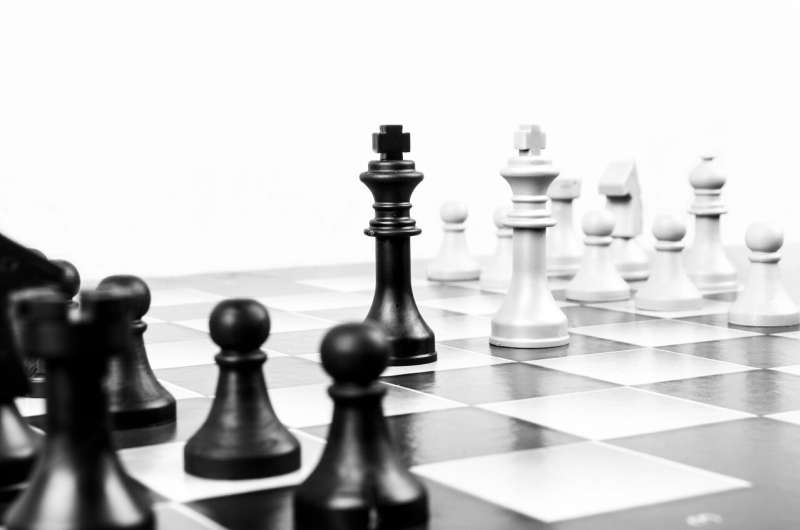This article has been reviewed according to Science X's editorial process and policies. Editors have highlighted the following attributes while ensuring the content's credibility:
fact-checked
peer-reviewed publication
trusted source
proofread
Female chess players may experience gender bias from parents, mentors

Young female chess players often face gender bias both in the male-dominated chess world and among parents and mentors who believe girls have less potential to succeed in chess than boys, according to research published by the American Psychological Association.
"It's disheartening to see young female players' potential downgraded, even by the people who are closest to them, like their parents and coaches," said lead researcher Sophie Arnold, a doctoral student at New York University.
The study, which was published online in the Journal of Experimental Psychology: General, presents what the researchers say is the first large-scale evidence of gender bias against young female chess players. The study included participants from a U.S. Chess Federation mailing list, comprising 286 parents and mentors of 654 children. Of the adults, 90% were men, and 81% of the children were boys, mirroring the gender disparities in the chess world.
In response to an online survey, the parents and mentors said they thought girls' highest potential chess rating was lower than boys' ratings, especially if they believed that brilliance was required to succeed in chess. Mentors, but not parents, who endorsed this brilliance belief also were more likely to say that female mentees were more likely to drop out of chess because of low ability.
The chess world has always been dominated by men. In 2020, only 14% of all U.S. Chess Federation players were girls or women. More than 100 high-ranking female chess players and coaches recently signed an open letter about "sexist and sexual violence" perpetrated in the chess world, deeming it "one of the main reasons why women and young girls, especially in their teens, stop playing chess."
"Gender bias also may prevent girls from even starting to play chess competitively if their own parents and mentors aren't convinced that they will succeed," Arnold said.
In the study, parents, but not mentors, believed girls had a less supportive chess environment than boys. Nevertheless, neither parents nor mentors believed girls were more likely to drop out of chess because of an unsupportive environment.
The study did not include enough mothers and female mentors to determine if their views differed from those of fathers and male mentors. The findings also may not reflect the opinions of the general public because the participants were already involved in competitive chess and had extensive interactions with the players they were rating which usually reduces bias.
There has been a huge resurgence of interest in chess by girls and boys across the United States. While some strides have been made to address gender bias in the chess world, more work needs to be done, Arnold said.
"Continued structural support for all female players is needed to improve girls' and women's experiences in chess," Arnold said. "Our research also suggests that bias can come even from those closest to girls."
More information: Sophie H. Arnold et al, Checking gender bias: Parents and mentors perceive less chess potential in girls., Journal of Experimental Psychology: General (2023). DOI: 10.1037/xge0001466





















